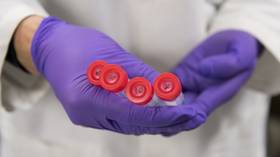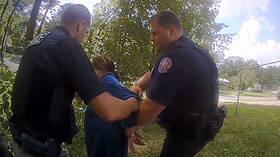Cancer patients welcome breakthrough ‘living drug’ that reprograms immune systems to fight disease

In a groundbreaking treatment, cancer patients’ immune systems are being genetically reprogrammed to fight their terminal cancer for them, with promising results.
In the UK, a number of National Health Service (NHS) patients with lymphoma at King’s College Hospital have been given CAR-T, a “living drug” that is unique to each patient as it contains some of their own cells.
Also on rt.com Reprograming life? Gamechanger DNA could revolutionize medicine, help us find aliens“It is a very exciting new development and it gives new hope to a lot of our patients,” Victoria Potter, haematologist at King’s College Hospital told the BBC. “It’s amazing to be able to see these people, who you may have not been able to give any hope to, actually achieving remission.”
Parts of a patient’s immune system, the white blood cells, are taken and frozen in nitrogen before being sent to laboratories in the US where they are genetically reprogrammed to find and destroy cancer, instead of killing viruses and bacteria like they normally would. The cells then become chimeric antigen receptor T-cells, or CAR-T and are put back into the patient’s bloodstream, where they grow and get to work battling cancer.
Also on rt.com Blood donation breakthrough sees scientists convert all types to O using gut bacteriaAlthough long-term statistics on the treatment are not yet available, in clinical trials 40 percent of patients with terminal lymphoma had all signs of the disease eliminated from their body within 15 months.
The treatment is expensive, and comes with potential side-effects. “Patients who receive the treatment can experience a range of unpleasant side effects from high fever; vomiting; and diarrhoea to confusion; aphasia (difficulty understanding or speaking); and loss of consciousnes," said Dr Reuben Benjamin, Consultant Haematologist at King’s.
Like this story? Share it with a friend!













